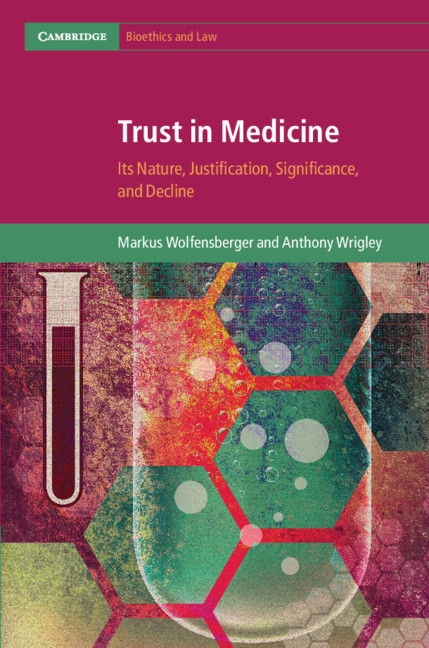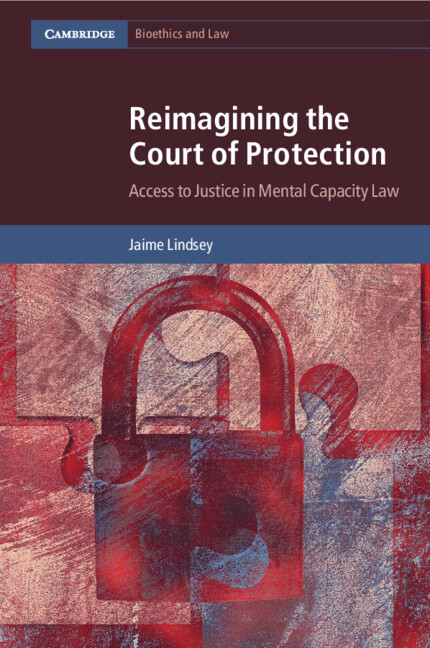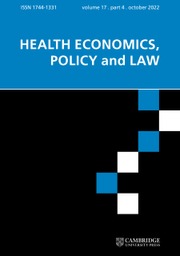Trust in Medicine
Over the past decades, public trust in medical professionals has steadily declined. This decline of trust and its replacement by ever tighter regulations is increasingly frustrating physicians. However, most discussions of trust are either abstract philosophical discussions or social science investigations not easily accessible to clinicians. The authors, one a surgeon-turned-philosopher, the other an analytical philosopher working in medical ethics, joined their expertise to write a book which straddles the gap between the practical and theoretical. Using an approach grounded in the methods of conceptual analysis found in analytical philosophy which also draws from approaches to medical diagnosis, the authors have conceived an internally coherent and comprehensive definition of trust to help elucidate the concept and explain its decline in the medical context. This book should appeal to all interested in the ongoing debate about the decline of trust - be it as medical professionals, medical ethicists, medical lawyers, or philosophers.
- Provides a comprehensive analytic definition of 'trust', adaptable to different situations
- Combines the expertise of a physician and a philosophical medical ethicist
- Presents reasons for the decline of trust in medicine and lays the foundation for how to improve it
Reviews & endorsements
‘Is a lack of trust in your doctor bad for your health? This book examines this question and the nature of trust. While doctors haven’t become more fallible, trust in them is said to be declining. Is this decline real or imaginary, and what is responsible? How can trust be restored? The authors leave no stone unturned in answering these questions and exploring the interplay between expectation, risk and competence.’ Daniel Simmen, Klinik Hirslanden, Zurich
‘This book, Trust in Medicine: Its Nature, Justification, Significance, and Decline, is now the starting point for all future work on trust in medicine. It is a significant and original contribution to the analysis and understanding of the concept of trust and its proper role in patient care. The collaboration between the authors, a physician and a philosopher, mean that the discussion is both theoretically rich but always tied to the realities of modern health care. This is exemplary bioethics, advancing the field and stimulating new avenues for future scholarship.' Angus Dawson, The University of Sydney
‘I thoroughly enjoyed reading Trust in Medicine: Its Nature, Justification, Significance, and Decline by Wolfensberger and Wrigley. It is a very clear example of how to do philosophical bioethics that engages closely with the empirical context and with practical clinical issues. The book thoroughly considers the philosophical literature on Trust and then, in a careful and strategic manner applies the lessons of that literature to the clinical context and the doctor- patient relationship. It is an extended piece of bioethics that will engage and challenge philosophers, bioethicists and clinicians. When we imagine applied philosophical bioethics, this is the kind of work that should come to mind.’ Mark Sheehan, University of Oxford
Product details
October 2019Hardback
9781108487191
268 pages
235 × 155 × 18 mm
0.51kg
5 b/w illus. 2 tables
Available
Table of Contents
- Part I. Introduction:
- 1. Introduction
- 2. Empirical evidence for the decline of trust
- Part II. The Nature of Trust:
- 3. A critical analysis of existing definitions of trust in medicine
- 4. Proposing a new type of definition: the pattern-based definition
- 5. A Pattern-based definition of trust
- 6. Differentiating trust from related concepts
- 7. Adapting the definition of trust to different situations
- Part III. Justification of Trust:
- 8. Justification of epistemic trust
- 9. Justification of patients' trust in physicians
- Part IV. Significance of Trust:
- 10. Instrumental utility of trust
- 11. The moral value of trust
- Part V. The Decline of Trust:
- 12. Reasons for the decline of trust
- Part VI. Perspectives:
- 13. Can we restore trust? List of references
- Index.






